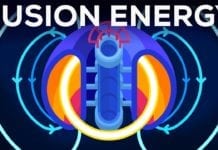There are thought to be around one-million Thais who are dependent upon alcohol, according to Sawitri Assanangkornchai, the director of Center for Alcohol Studies at Prince of Songkla University.
But visual evidence would suggest there are at least ten times that number who can be considered regular, heavy drinkers.
Ten-percent, it is conceded, would be regarded as ‘severely dependent.’
And yet without a thought, it seems, to any of these people, the Thai government imposed a ban on the sales of alcohol throughout the kingdom – without notice and effective immediately.
The excuse, of course, is the risk of social gatherings spreading COVID-19, but the benefits of the booze ban are entirely unknown and unprovable. As are the benefits of closing convenience stores at 10pm and taping off bicycle pathways.
What is known, and provable, is the effect a sudden and enforced withdrawal from alcohol can have on even the mildest of users.
For heavy drinkers the risk of dying from sudden withdrawal is very real. Cold turkey can be deadly.
Thoughtful people have long said that any program for becoming sober should not be entered into lightly.
Because during alcohol withdrawal, many nasty side-effects can be experienced.
What can happen when clueless governments impose alcohol bans?
Alcohol is a depressant, meaning it slows or lowers the functioning of the central nervous system.
Through regular use the body eventually becomes conditioned to the presence of alcohol and is able to adapt to it.
During withdrawal, the functioning of the central nervous system struggles to re-adjust to the lack of alcohol.
And before it does there is a hyper-sympathetic state, which means rapid heart rate, higher temperature and sweating.
Which, by the the way, are the same symptoms that people are being diagnosed as Coronavirus Positive by.
And sufferers will need immediate medical treatment.
The most serious effects
More serious symptoms of withdrawal, known as alcohol withdrawal syndrome (AWS), include delirium tremens (DTs) in people with an alcohol dependence.
The effects of AWS can appear within hours of stopping drinking, or emerge several days later.
Symptoms of AWS will include shaking, headache, high blood pressure, anxiety, and tachycardia (increased heart rate). Again, the same as Coronavirus symptoms.
DT is also a serious type of alcohol withdrawal that can very easily prove to be fatal.
It is common among people with a history of alcohol withdrawal, those who drink heavily, and those who have had an addiction to alcohol for more than 10 years.
The most serious symptoms of DT are seizures, hallucinations and confusion. All of which appear to be in evidence throughout the Thai government.
More serious effects of AWS and DT can lead to physical trauma due to seizures, as well as metabolic issues.
Low electrolyte levels can lead to cardiac complications during withdrawal, including arrhythmias and sudden death resulting from heart attack and stroke.
The only thing more dangerous to an alcohol abuser is the sudden availability again, without restriction.
All of this means the government of Thailand, and some other countries, has now exposed between one and ten million people to the risk of seizure and sudden death, probably without realising it because they don’t seem capable of thinking anything through properly.
Provincial governors have imposed extended bans in some provinces that criminalise the buying and selling of alcohol without understanding the danger that brings to the health and safety of millions of citizens.
Which only further proves that the people we rely on, and who assume responsibility for our well-being, have no idea what they are doing. – Albert Jack





































